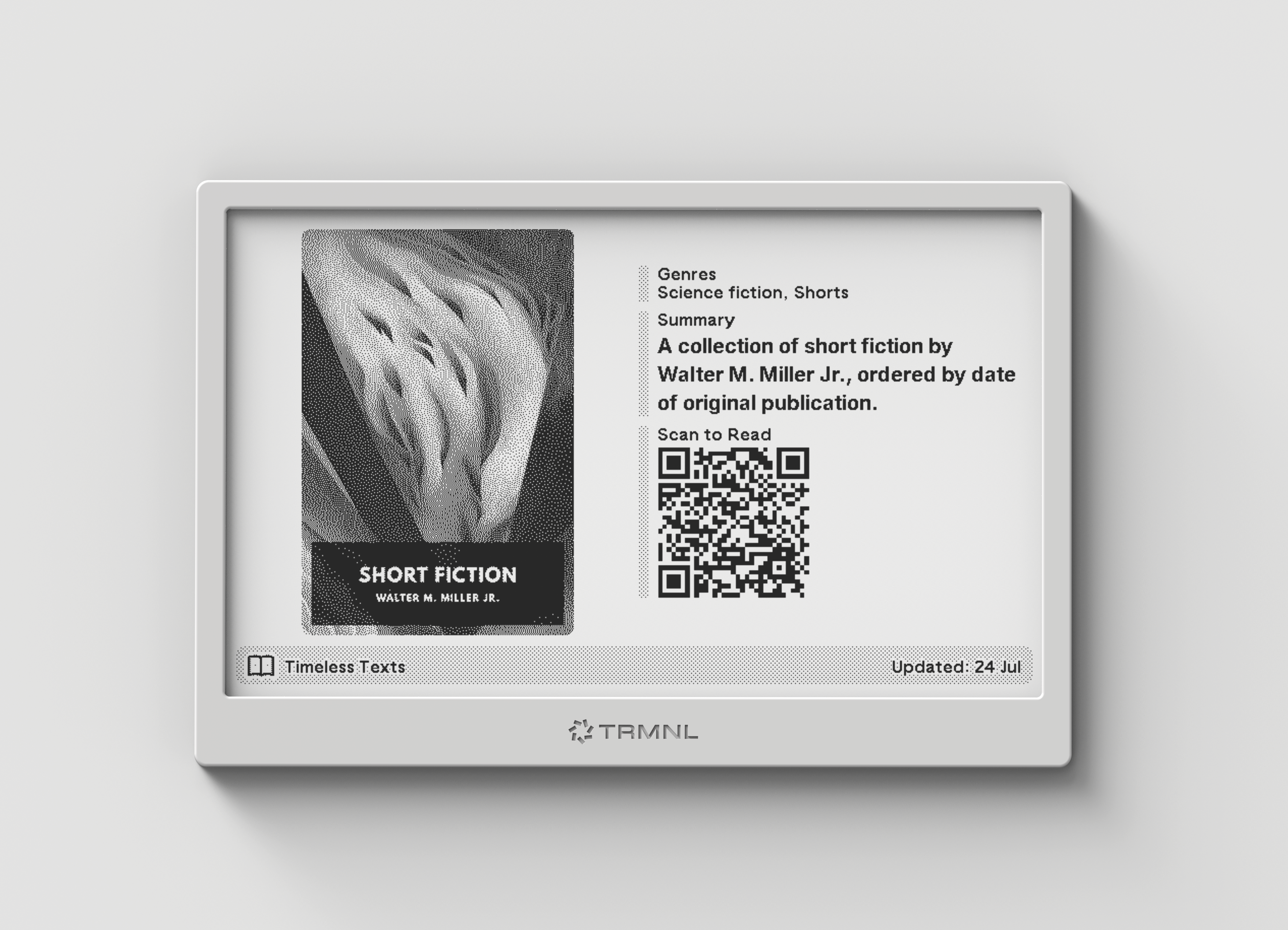Each day my plugin serves up one carefully curated, public-domain ebook from Standard Ebooks.
Choose from all genres, a curated few, or just your favourite. Free, beautifully formatted, timeless texts delivered straight to your TRMNL.

Timeless Texts was my entry to the TRMNL book reader hackathon. Building plugins continues to be a great evening project during my parental leave. The hackathon provided a focused challenge. The consistency and craft behind Standard Ebooks made it the perfect foundation to build on.
With this one, I was interested in exploring an external API. Standard Ebooks offers an OPDS feed, which they make available to open source projects. I wanted to respect the API and avoid exposing all of Standard Ebooks’ feed details to the public. So inadvertently, I found myself building my own API. My API uses Standard Ebooks’ feed to select one book from their entire catalog, plus one from each of their 19 genres - for a total of 20 randomly selected books. It runs daily via GitHub Actions to create a books.json that I can then access via TRMNL’s plugin framework.
I’m particularly proud of three plugin features:
- It supports all available size classes, gracefully scaling down while keeping a cover-focused layout.
- I wanted users to instantly access the books they see. Generating a QR code for the displayed book allows you to go from passive interest to active reading in seconds.
- I initially showed the same book to all users. Good, but not great. Adding genre personalization wasn’t easy. I had to shift from a single JSON array to parsing pools of options from a much longer list, but the result is clearly better.
While the API is hosted on GitHub, I wanted the plugin output to be generated client-side. It’s built using Liquid, JavaScript, HTML, and Tailwind-style CSS. I’ve enjoyed getting to know Liquid’s quirks through TRMNL projects. Thankfully, there’s plenty of Shopify-built content to help.
The plugin is now available for TRMNL users. The code is open source in the standard-ebooks-daily repo. Fork the code, use the API, and reach out if you build something cool.